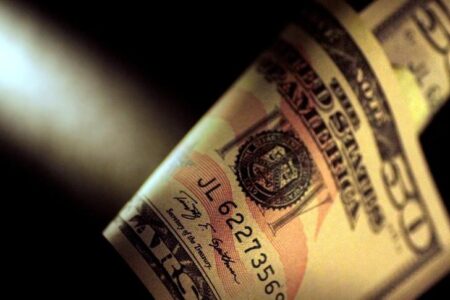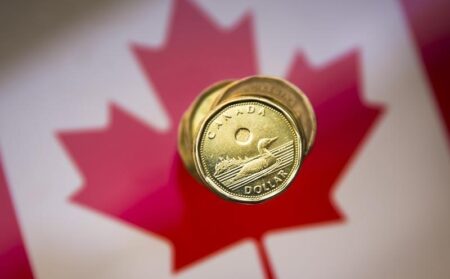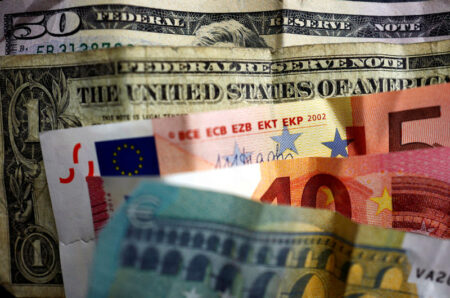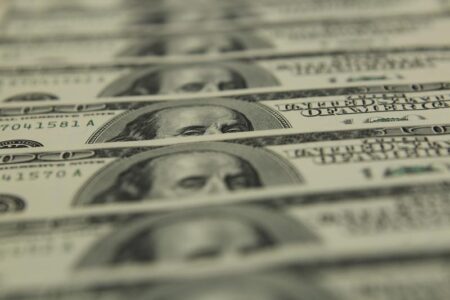By Jorge Otaola
BUENOS AIRES (Reuters) – Argentina’s government intervened in the foreign exchange market on Thursday to tamp down volatility ahead of the country’s general elections on Sunday, while officials said there would be no sharp currency devaluation after the vote.
In the black market, where dollars sell for almost three times the official rate, trading was almost absent amid a government crackdown, with bids of 900-1,010 pesos per dollar but no confirmed transactions, traders said.
“The range of prices is enormous with lots of fear about the government’s drive to stop illegal operations and the closure of many exchange houses,” a foreign exchange trader said on condition of anonymity.
“The market is practically inactive,” said another operator. “Everything is very complicated and there is fear to operate which is reflected in the prices.”
Argentina’s tight capital controls since 2019 have pushed many people into illegal black markets and other informal parallel markets to buy dollars, creating a headache for the government which has pegged the peso at 350/dollar since August.
With the Oct. 22 election involving two leading candidates who have pledged to undo the capital controls, many analysts and traders have speculated about a rapid devaluation, which would follow a one-day weakening of nearly 20% in August.
The government, though, moved to head off those claims.
“On Oct. 23, the official dollar will (still) be 350 pesos,” Gabriel Rubinstein, secretary of economic policy, wrote on X, adding a sharp devaluation would not help the country, battling with triple-digit inflation and negative reserves.
He added that from Nov. 15 the currency would be put on a “crawling peg” that allowed it to devalue by 3% monthly.
Argentines have looked to stock up on safe-haven dollars ahead of the election, with uncertainty about the country’s outlook. Front-runner libertarian Javier Milei faces Economy Minister Sergio Massa and conservative Patricia Bullrich.
Milei, a radical outsider, has pledged to dollarize the economy and eventually shut the central bank.
Traders on Thursday said the government was trying to prop up the beleaguered currency.
“There are ‘friendly’ hands providing liquidity” to contain the exchange market, a private sector financial agent said.
Read the full article here












